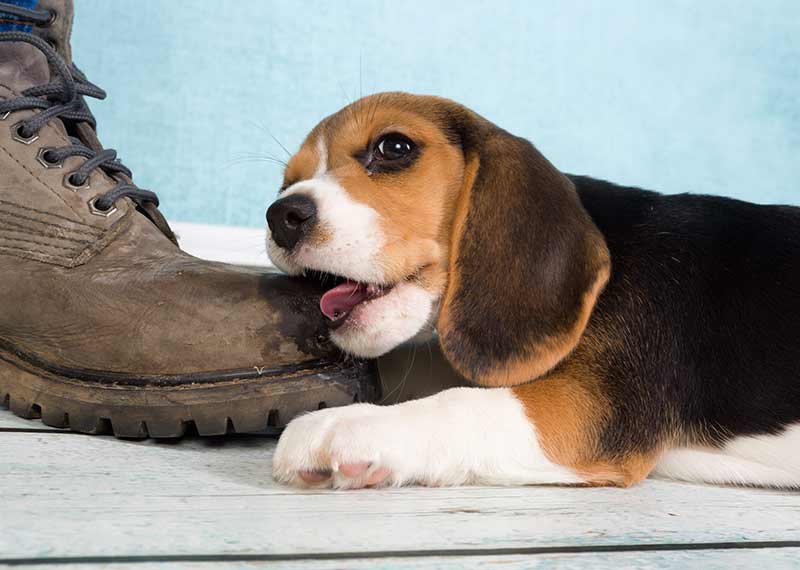
Just as a toddler feels there way around the big world with their hands, a puppy will do the same with their mouth. It is a common and normal behaviour among all young pups. As they begin to teethe, they naturally need things to chew and will therefore begin to bite.
Why do they bite?
Although it is often thought to be a teething behaviour, biting in puppies is generally a form of exploration or social play and is rarely aggressive or intended to cause harm. It is a common and normal behaviour in young puppies and any attempts to stop it are likely to be unsuccessful unless given another option.
If the problem is to do with teething, your puppy will more than likely begin to gnaw and chew on you and anything they can get their mouth on. You will need to provide them with an abundance of social play that can include fetch, chasing, or light tug of war. A rough game of tug-of-war can result in the puppy becoming unruly and may hurt their gums even more. The pup will eventually learn to control their biting ways and ease up ??? especially when playing.
Re-directing this behaviour
Even though they a small, puppy bites can sometimes hurt especially when they have their sharp baby teeth. In order to teach them how to properly play and to draw a line between fun and too much, you???ll need to inhibit their biting. In order to do this you will need to re-direct their biting on to something else (such as a chew toy) or show them that their biting can actually hurt.
To do this, you will have to be consistent when they bite your hands too hard. As soon as they go overboard on the biting, make a yelping noise and allow the bitten hand to go limp as you ignore your pup for 10-20 seconds and then continue to play with them. This lets the pup know that biting too hard can hurt and that the fun will stop if they do it too hard.
It is important to remember that your pup will bite you at least once or twice as it is a normal behaviour. However it is up to you to control this behaviour and teach them wrong from right through positive reinforcement when they do the right thing, and stop play time for a brief time when they do the wrong thing. Eventually they will be able to associate the desired behaviour when it comes to play time and will be able to exhibit the correct behaviour around both humans and other dogs.


